In 1937, Professor Robert A. Brady published a book titled: The Spirit and Structure of German Fascism. In the foreword of the book, Harold J. Laski wrote:
“Fascism is nothing more than monopoly capitalism imposing its will on those masses whom it has deliberately transformed into its slaves.”
“There is no social revolution: the ownership of the instruments of production in the sense that those organs through which prior to 1933, criticism of the social order might be expressed, have been ruthlessly destroyed. What replaces them is essentially a partnership between monopoly capitalism and the Nazi Party in which that supreme coercive power which is the state’s essence is used to compel obedience to the new system.”
In Nazi Germany, corporations partnered with the military to impose fascist management on the people. The military got carried away and committed crimes against humanity. The reincarnation of German fascism in the United States, has the common element – corporations and monopoly capitalists but this time, they have partnered with the administrative agencies of government. As in Nazi Germany, the corporations have the power and the government does their bidding. In the reincarnated system of fascism, the primary mechanism of force is information, telecommunications and systems of surveillance and control. Combine these elements with a corrupt Department of Justice and increasingly, a corrupt court system. The nation’s information infrastructure was weaponized by the agencies of government to manage and control the slaves for the wealthy elite, monopoly capitalists.
The Organization of Opinion
What we seek is the reign of law, based upon the consent of the governed and sustained by the organized opinion of mankind
~ Woodrow Wilson, July 4, 1918, Speech at Mount Vernon
Organizers of Opinion and Policy: International Democrat Union
In 1983, Frank Fahrenkopf, as Chairman of the Republican National Committee published an article he wrote in Commonsense, A Republican Journal of Thought P.18, Volume 6, December 1983, Number 1. The title of the article was The Challenge of Democracy: The Republican Response (See P.20). In the article, he reveals the following:
The Republican Response: Expanding the Frontiers of Democracy
Republicans can play a unique role in this process as the Party’s international programs continue to expand under the Endowment structure. For example, our position as a charter member of the world’s newest international political organization, the International Democrat Union (IDU), offers a key set of opportunities.
The IDU, established in June 1983, brings together some of the leading conservative and moderate political parties in the world, including the Conservative Party of the United Kingdom, the German Christian Democratic Party, the Canadian Progressive Conservative Party and a host of other parties from Europe and Pacific.
. . . The Wall Street Journal hailed the IDU as “The Nonsocialist International.” With Vice President George Bush representing President Reagan, and former National Security Advisor Richard V. Allen in attendance, I signed the IDU’s founding charter marking the first time that the Republican Party has joined an international political organization of this magnitude.
Our role in the founding of the IDU grew from our participation–again as a founding member–of the Pacific Democrat Union (PDU) which with the European Democrat Union formed the IDU.
IDU – Founding Meeting Minutes, June 24, 1983
Chairman: Dr. Alois Mack, Austria, Osterreichische Volkspartei (Austrian People’s Party)
U.S. – Vice Chairman: Richard Allen, Reagan’s National Security Advisor
Frank Fahrenkopf, Chairman, Republican National Committee
Frank Fahrenkopf – Background
1983-89 – Chairman of the Republican National Committee
1983 – Co-Founder and Vice Chairman of the International Democratic Union
1983 – National Endowment for Democracy
1984, he founded the International Republican Institute with Democratic National Committee chairman Paul G. Kirk. (See previous research: Democracy’s True Colors)
In 1975, Fahrenkopf founded Fahrenkopf, Mortimer, Sourwine, Mousel and Sloane. The new firm’s clients included hotels, casinos, liquor vendors, and construction companies. Also in the 1970s, Fahrenkopf was retained by the Washington law firm of Hogan and Hartson. He worked as local counsel in Nevada when the firm represented Bethesda, Maryland-based Howard Hughes Medical Institute in litigation over Hughes’s will. In 1985, Fahrenkopf was hired as a “special partner” of Hogan and Hartson, which hoped to use Fahrenkopf’s national and international ties to help further develop its international practice. Center for Public Integrity, The Buying of the Presidency 2008
In 1985, Fahrenkopf was hired by the firm Hogan & Hartson, as a “special partner”, where he was paid at least $100,000 a year. While RNC head, he also worked for two Nevada law firms, and was a director of First Republic Bank Corporation of California.[1] See previous research: Samuel “Sandy the Burglar” Berger another Hogan & Hartson international trade policy attorney.
MORE
Proximate Beginning of the Movement
Toward the North American Union
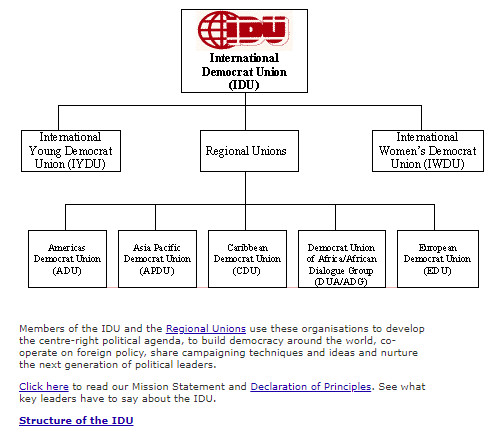
IDU Mission
The International Democrat Union (IDU) shall consist of member parties of the Asia Pacific Democrat Union (APDU); the Caribbean Democrat Union (CDU); the Democrat Union of Africa; the European Democrat Union (EDU); the European People’s Party (EPP); the Alliance of European Conservatives and Reformists (AECR); and the Union of Latin American Parties (UPLA), which have adhered to the Declaration of Principles.
The IDU will foster the common philosophy of its member parties, establish permanent relations at a bilateral and multilateral level, encourage mutual support and to these ends will provide a forum for the exchange of views and information on matters of interest to all or a considerable number of its members.
Global Competition in the Price of Labor
The Commodification of Labor:
War on the Working Men and Women of America
In 1981, William E. Brock, then Chairman of the Republican National Committee, was appointed to Ronald Reagan’s cabinet as the U.S. Trade Representative.
It was in 1982, the U.S. first brought up in the GATT the idea of a new round of multilateral trade negotiations to open up Third World markets and bring services issues into the General Agreement”.
The US intentions on services had been signaled even in 1981 by US Trade Representative Bill Brock, soon after President Reagan moved into the White House, in testimony before Congress and next year in February at the Davos symposium.
In a July 29, 1986 hearing, Marc Tucker, Carnegie Forum on Education and the Economy, testified that employers were already offshoring information and tech industry jobs using the telecommunications and international transportation systems. One solution could have been a ban on the data of American citizens being sent offshore but that wasn’t even considered. After initiating the Uruguay Round of trade talks that included trade in services, Brock was appointed to become the Secretary of Labor in 1985.
As Secretary of Labor, Brock initiated the restructuring of the U.S. system of education to turn American working people into slaves to be managed. The new system – a National Human Resource Management System was designed to be an inventory system for human commodities in order to manage the imported human commodities as would be required for an international economic system of free trade in goods and services. That’s about as fascist-communist as it gets.
See previous research: Guest Worker Program and in particular, look at H.R. 3333, Short Title – This Act may be cited as the `Rewarding Employers that Abide by the Law and Guaranteeing Uniform Enforcement to Stop Terrorism Act of 2005′ or the `REAL GUEST Act of 2005′.
The Corporate War on Americans
- +The Backstory - Manufacturing
In 1982, a book titled, The Deindustrialization of America by Barry Bluestone and Bennett Harrison was published to sound a warning about the diverging interests between industrial corporate America and our country – the people of our country. The subtitle of the book was Plant Closings, Community Abandonment, and the Dismantling of Basic Industry. The book begins:
Capital vs. Community
On June 30, 1980, Business Week finally sounded the alarm. The decline of the American economy had become so serious that the nation’s leading business journal decided to devote an entire special issue to detailing a comprehensive plan for revitalizing the U.S. economy. In a tone of uncharacteristic dismay, the editors concluded:
“The U.S. economy must undergo a fundamental change if it is to retain a measure of economic viability let alone leadership in the remaining 20 years of this century. The goal must be nothing less than the reindustrialization of America. A conscious effort to rebuild America’s productive capacity is the only real alternative to the precipitous loss of competitiveness of the last 15 years, of which this year’s wave of plant closings across the continent is only the most vivid manifestation.”
By the beginning of the 1980’s, every newscast seemed to contain a story about a plant shutting down, another thousand job s disappearing from a community, or the frustrations of workers unable to find full-time jobs utilizing their skills and providing enough income to support their families. . . The system that seemed so capable of providing a steadily growing standard of living during the turbulent 1960s had become totally incapable of providing people with a simple home mortgage, a stable job, or a secure pension.
- +The Backstory - Services
In 1982, Maurice Greenberg of the American Insurance Group formed the Coalition of Service Industries (CSI) to lobby for Trade in Services in the international trade agreements. They were successful in getting the U.S. Government to begin collecting data on the service industries. In Maurice Greenburg’s 2013 book titled, The AIG Story was written the following:
Among the first ambitions that the CSI had was to persuade the U.S. Bureau of Labor Statistics to measure trade in services.
The CSI reached that milestone in 1984 when amendments to U.S. trade law mandated improved government data collection on trade in services. The figures stunned those outside the service industries. Trade in services, it turned out, was a central piston of the economy: by the 1980s, 70 percent of the U.S. gross national product (GNP) and jobs were attributed to the service sector; international trade exceeded $1 trillion, and one-fourth of that was in services. Page 86-87
In Washington, the CSI also won the support of many influential members of Congress from both parties and their staffs. Such support enabled the CSI to occupy a unique role on trade policy in Washington, as a member of an advisory committee on trade in services. The coalition used that role to urge global trade representatives to include trade in services on the GATT Agenda. A breakthrough came quickly in 1982 when William Brock, the U.S. trade representative from 1980 to 1985 persuaded his counterparts in vital countries to add it to the November 1982 GATT ministerial meeting in Geneva. This was the first formal international recognition of the subject as legitimate.
[James Robinson, CEO of American Express] Robinson traveled to India on several occasions during this period to meet with ministers of trade and finance. Attempting to explain the importance of trade in services, and how India’s most valuable resource was its impressively educated and well-trained workforce, he would be met with blank stares. Within decades India would, in fact become a leader in many services. Consistent with AIGs persistent passion for “looking around corners,” CSI members foresaw that future while others awakened to it much later.
Second Anniversary of the founding of the IDU, 1985
C-Span International Democratic Union, 1985, 2nd anniversary
EDU – European Democrat Union
PDU – Pacific Democrat Union
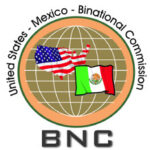
The Binational Commission was established in 1981 by Presidents Reagan and Lopez Portillo to serve as a forum for meetings between cabinet-level officials from both countries.
Free Flow of Goods and Cheap Labor Across the Borders
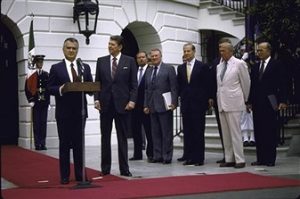 In August of 1983, President Ronald Reagan and Mexican President Miguel de la Madrid signed a treaty to create an international zone 60 miles on either side of the border. This border breach was the first step in establishing the Free Trade Area of Americas. It was also consistent with the World Bank’s report: North-South, A Programme of Survival produced by the Independent Commission for International Development Issues headed by Willy Brandt, President of the Socialist International. Goodbye United States. Hello North American Common Market.
In August of 1983, President Ronald Reagan and Mexican President Miguel de la Madrid signed a treaty to create an international zone 60 miles on either side of the border. This border breach was the first step in establishing the Free Trade Area of Americas. It was also consistent with the World Bank’s report: North-South, A Programme of Survival produced by the Independent Commission for International Development Issues headed by Willy Brandt, President of the Socialist International. Goodbye United States. Hello North American Common Market.
Free Trade Impetus in Canada, New York Times, February 21, 1984
Previous research: Rise of the Socialist International (North-South: A Programme of Survival)
Free Trade and Open Borders: Philosophy divorced from reality – in other words, a Con Game.
Notice that Bush singles out the Austrian, Dr. Alois Mock, Richard Allen, National Security Advisor and Frank Farenkopf.
The IDU held two other meetings in the United States that were broadcast on C-Span
C-Span International Democratic Union, January 15, 2000, Young Leaders Conference
Conference held in Florida. Three young leaders – Germany, UK, US – giving the history of their parties from the podium plus a couple of others from the audience – South Korea and Taiwan.
C-Span International Democratic Union, June 10, 2002, Party Leaders’ Meeting
Vice President Dick Cheney speaks in this one.
Organizers of Opinion and Policy: National Endowment for Democracy
From the current history page of NED:
By the late 70’s, there was an important model for democracy assistance: the German Federal Republic’s party foundations, created after World War II to help rebuild Germany’s democratic institutions destroyed a generation earlier by the Nazis. These foundations (known as “Stiftungen”), each aligned with one of the four German political parties, received funding from the West German treasury. In the 1960’s they began assisting their ideological counterparts abroad, and by the mid-70’s were playing an important role in both of the democratic transitions taking place on the Iberian Peninsula.
Late in 1977, Washington political consultant George Agree, citing the important work being carried out by the Stiftungen, proposed creation of a foundation to promote communication and understanding between the two major U.S. political parties and other parties around the world. Headed by U.S. Trade Representative William Brock, a former Republican National Committee Chairman, and Charles Manatt, then serving as Democratic National Committee Chairman, by 1980 the American Political Foundation had established an office in Washington, D.C. from which it provided briefings, appointments, and other assistance to foreign party, parliamentary, and academic visitors to the U.S.
Two years later, in a major foreign policy address delivered at Westminster Palace before the British Parliament, President Reagan proposed an initiative “to foster the infrastructure of democracy–the system of a free press, unions, political parties, universities–which allows a people to choose their own way, to develop their own culture, to reconcile their own differences through peaceful means.”
. . . The House Foreign Affairs Committee included a two-year authorization for the proposed National Endowment for Democracy at an annual level of $31.3 million as part of the FY84/85 State Department Authorization Act (H.R. 2915). The Reagan Administration had originally proposed a larger ($65 million) democracy promotion initiative to be known as “Project Democracy” and coordinated directly by the United States Information Agency (USIA). When the Foreign Affairs Committee reported out H.R. 2915, it did not include funding for ” Project Democracy,” making clear its preference for the non-governmental Endowment concept. The Administration then voiced support for the creation of NED.
On the day the Senate approved the conference report (November 18, 1983), articles of incorporation were filed in the District of Columbia on behalf of the National Endowment for Democracy. The Endowment was established as a nonprofit organization under section 501c (3) of the Internal Revenue Service Code.
NED’s creation was soon followed by establishment of the Center for International Private Enterprise (CIPE), the National Democratic Institute for International Affairs (NDI), and the National Republican Institute for International Affairs (later renamed the International Republican Institute or “IRI”), which joined the Free Trade Union Institute (FTUI) as the four affiliated institutions of the Endowment. (FTUI was later reorganized as the American Center for International Labor Solidarity, also known as the “Solidarity Center.”)
As Chairman of the Republican National Committee, William Brock wrote an article about the history of the National Endowment of Democracy:
“Early in 1979, I was privileged to meet with then candidate Margaret Thatcher and a number of her colleagues. As a result of those meetings, I became persuaded that the American Republican and British Conservative parties had much to learn from each other and much to contribute to newly created parties in other countries, particularly the Third World.” P.11
The Business community was represented by Samuels from the Chamber of Commerce and Lane Kirkland, president of the AFL-CIO represented labor. We were also fortunate to have a group of outstanding private and public sector leaders on the Executive Board: Richard V. Allen, former National Security Advisor to President Reagan . . .(p.13)
German Stiftungen
The four publicly funded foundations in the Federal Republic of Germany, for example, each allied to a major political party, today sponsor such efforts in over five dozen countries. The work undertaken by the:
Konrad Adenauer (CDU)
Friedrich Ebert (SPD)
Friedrich Naumann (FDU)
Hanns Seidel (CSU)
has been so effective that the idea of party foundations has spread to countries as diverse as Spain (which recently created its own political foundations after witnessing the helpful role played by the German foundations in sustaining Spanish democracy), Portugal, Venezuela and the United States. The Democracy Program, Page 8
American Stiftungen
Center for International Private Enterprise (CIPE)
National Democratic Institute for International Affairs (NDI)
National Republican Institute for International Affairs later renamed the International Republican Institute or “IRI”)
Free Trade Union Institute – later reorganized as the American Center for International Labor Solidarity, also known as the “Solidarity Center.”)
The first President of the National Endowment for Democracy was a Socialist – Carl Gershman. So what’s wrong with this picture? The President of the National Endowment for Democracy, Carl Gershman was head of the Social Democrats, USA from 1974 to 1980. Social Democrats are socialists – aka communists. See previous research, Democracy as a Trojan Horse
The Democracy Campaign to Break Countries
In a letter to the President dated, July 27, 1983, William Brock, US Trade Representative presented the president with a report on the Democracy Program:
The National Endowment for Democracy Act was passed by the House and Senate on November 18, 1983. It was slipped into an Appropriations Bill for the State Department – meaning that there was no debate of the legislation through the regular process. Commonsense, A Republican Journal of Thought P.18, Volume 6, December 1983, Number 1.
Obvious in hindsight, the purpose of the four institutions of the National Endowment for Democracy was to organize the opinions of the four institutional sectors of a country. The corporate coalitions in this global fascist system, need to present a united front while countries are being looted, societies destroyed and marxist/communists are being installed for management of the human commodities.
World Movement for Democracy
Duality Defined
The World Movement for Democracy was launched by NED in New Delhi, India in February 1999. (Recall that James Robinson, CEO of American Express had been lobbying India for international free trade in services – that is an important connecting thread. Reference above, Backstory: Services)
World Movement for Democracy: Founding statement
Keeping in mind that the National Endowment for Democracy (NED) was established by the same people who established the International Democrat Union as a movement for commercial freedom and global governance for corporate economic war machines, NED initiated the World Movement for Democracy. The “freedom, freedom, freedom” and “human rights” shouted by the marxist/communist revolutionaries empowered with corporate money to serve the agenda of the multinational corporations to break nation-states and civil societies. Put succinctly, NED organizes and trains people to become corporate stooges who work towards their own enslavement in the name of freedom and human rights.
For Example: NED Event Recalls Burma’s 1990 Election NED event sponsored by: Goals for Americans Foundation, Ullico, the American Federation of Teachers, the AFL-CIO, and Lockheed Martin.
The revolutions are known as color revolutions and they result in authoritarian governments no matter who wins, the country loses.
This link is to the NED website in August of 2000, notice World Movement for Democracy on the left panel.
This link is to the website for the World Movement for Democracy. Notice at the bottom of this webpage, both World Movement for Democracy and National Endowment for Democracy are listed – both with the address and email address of NED.
If you go to the current website for the World Movement for Democracy, here is what you see – the National Democrat Institute, one of NED’s institutions giving guidance to local governments on gender issues:
You can’t make this stuff up. The American government is funding and supporting an organization, NED, that is waging social and economic war on its own people and the people of the world in support of global corporate fascism – and they did it through political party capture.
G20 – Global Governance Project
The G20 was founded in 1999 after the Asian crisis as a forum for the Finance Ministers and Central Bank Governors to discuss global economic and financial issues. It appears that India leads it.
The G20 was upgraded to the level of Heads of State/Government in the wake of the global economic and financial crisis of 2007, and, in 2009, was designated the “premier forum for international economic cooperation”.
The G20 Summit is held annually, under the leadership of a rotating Presidency. The G20 initially focused largely on broad macroeconomic issues, but it has since expanded its agenda to inter-alia include trade, sustainable development, health, agriculture, energy, environment, climate change, and anti-corruption.
The Group of Twenty (G20) is the premier forum for international economic cooperation. It plays an important role in shaping and strengthening global architecture and governance on all major international economic issues.
The question is – is India building and running the systems of our government? I have a lot of research that makes that question not as absurd as it might sound. My earliest research had to do with the massive importation of Indians to work in the Information Systems job market squeezing out American citizens in our own country. Even the Pentagon was hiring H-1b’s for jobs requiring security clearances.
Margaret Thatcher was a psychopath
NEXT:
William Brock and the Human Resource Management System

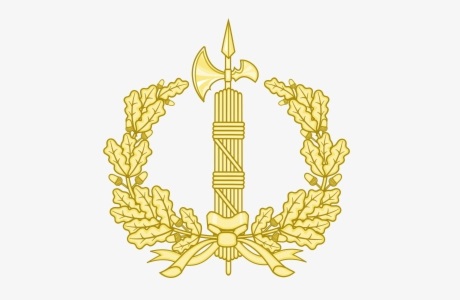
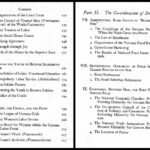

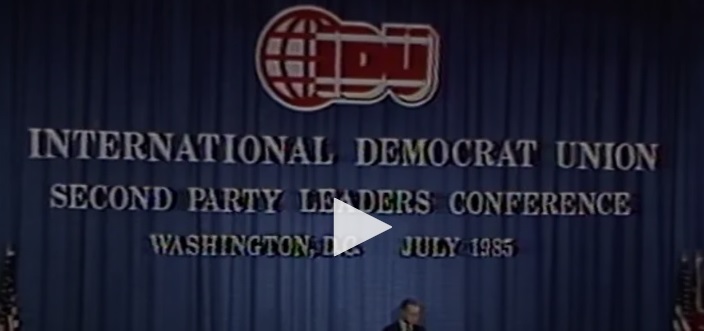


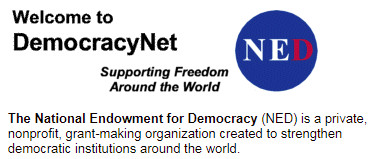

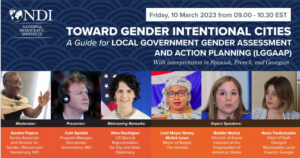
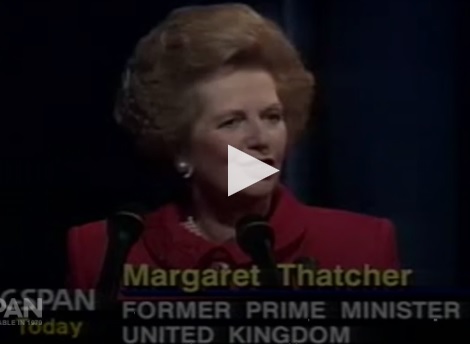



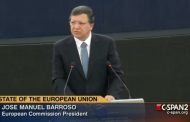
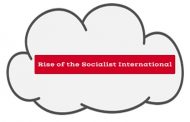
3 Comments
Shelby
http://worldparliament-gov.org/
http://worldparliament-gov.org/legislative-acts/world-legislative-acts/
Shelby
All planned out at the Presidio see around 21 minutes in
https://www.youtube.com/watch?v=nYfbpPlUgdE
UN agenda after WWII was planned at Presidio
Shelby
The e governance port hole as on a ship for India which is part of the BRICS green new deal
https://www.meity.gov.in/content/land-records
Sustainable develpment goals and world wide land theft
https://landportal.org/book/sdgs
It’s a port hole like on a SHIP ie marytime law
https://duckduckgo.com/?q=UNIDROIT+AND+aldo+brandini&atb=v314-1&ia=duckassist
World Democratic Parliament and the Earth CONstitution
http://worldparliament-gov.org/legislative-acts/world-legislative-acts/